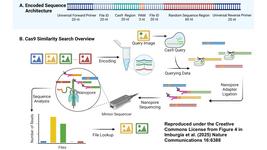Scientists use CRISPR to develop new detection assay for fat mass and obesity-associated protein
Overexpression of the fat mass and obesity-associated protein (FTO) has been associated with various cancers, and variants of the FTO gene have been associated with an increased risk of developing obesity.
In an article published this week in Biosensors and Bioelectronics, scientists in China describe a sensitive and selective CRISPR-Cas12-based assay for the detection of FTO, which may prove useful in early clinical diagnosis.
In simple terms, when present, the FTO protein removes the m6A modification on the catalytic core of an enzyme called DNAzyme - which is present in the reaction - restoring its cleavage activity and generating so-called activator DNA. The activator DNA further activates the trans-cleavage ability of Cas12a - also present in the reaction - leading to the cleavage of a single-stranded ferrocene-tagged probe (ssDNA-Fc), and the subsequent emission of a measurable electrochemiluminescence (ECL) signal.
Read the full article in Biosensors and Bioelectronics here.
To get more CRISPR Medicine News delivered to your inbox, sign up to the free weekly CMN Newsletter here.
Tags
CLINICAL TRIALS
Sponsors:
Suzhou Maximum Bio-tech Co., Ltd.
Sponsors:
Zhejiang University







